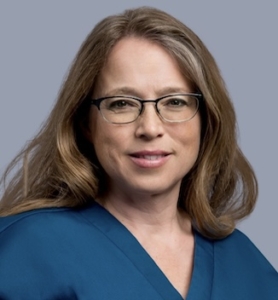A task force at Western Carolina University (WCU) is looking to indigenous traditions to inform healthcare leadership. Terrica Durbin, PhD, DNP, CRNA, FAANA, an AANA member since 2007, is the director of the School of Nursing at WCU and hopes to incorporate these traditions into a program for healthcare leaders as well as a nursing education program.

WCU is located near the site of Kituwah, which Cherokee people hold sacred as their original town. Cherokee elders have been deeply involved with the creation of the program, helping to integrate indigenous principles.
“Indigenous principles of leadership are quite different from Western principles,” Durbin said. “Indigenous people don’t necessarily look at amassing power and influence for the sake of amassing power and influence, as we sometimes do in Western society.”
The Cherokee are a matrilineal society, so the center of power in the family is held by women, Durbin said. “The concept of leadership is about nurturing, mentoring, and growing — much like a mother might care for children.”
Durbin said the idea for the program came from the director of the Cherokee Indian Hospital in Cherokee, North Carolina. Working with a medical anthropologist on WCU’s faculty, along with Cherokee elders, the task force — which is chaired by Dean of the College of Health and Human Sciences Lori Anderson, PhD, RN — looked to indigenize concepts of healthcare leadership. She said while there have been indigenized nursing programs, they’re rare. No other institution has attempted to what WCU is doing.
“We sat down as faculty and started asking ourselves, ‘What are the Western principles that we would incorporate into a nursing or healthcare leadership program, and what would that look like?’” Durbin said.
Once the team had a list of concepts of Western leadership, the medical anthropologist on the task force, Dr. Lisa Leffler, and Cherokee elders worked to transform those concepts into indigenous terms. The Cherokee elders included Dr. Tom Belt, the retired coordinator of WCU’s Cherokee Language Program, and his wife, Roseanna Belt.
“We’re curating resources that address the concepts from the indigenous perspective. We haven’t incorporated that into our nursing education program yet since this work is still very new, but that’s coming,” Durbin said.
“We’re working with the Cherokee to create a nurse midwifery program based on indigenous principles,” she added. “It will of course also have Western science. We’re not saying that Western principles are bad or that we should throw them out, but that perhaps interweaving some of the indigenous principles that have been overlooked for so long might strengthen our management tactics and healthcare.”
She said learning about Cherokee traditions has helped her to be more compassionate and empathetic as a leader.
“Those are traits that are sometimes less valued in Western culture, where you need to be a go-getter, have lots of drive, and be highly organized. There is something to be said for getting back to caring for the people that you are leading and for the people you’re working with. It’s made me more introspective and made me view some of my Western behaviors through a different lens,” Durbin said.
She said for Western society, looking through a different lens to other cultural traditions can be beneficial.
“For so long, we have dismissed non-Western cultural traditions as being somehow backwards or uninformed because they don’t come from our background. I think there are lots of indigenous principles that, if we interwove them into our own leadership and our own work, would make a difference.”